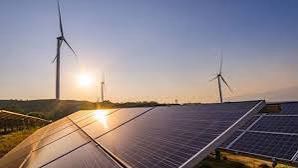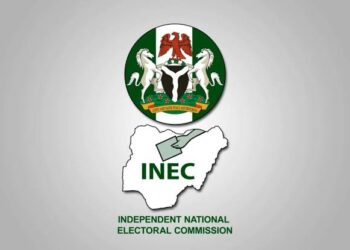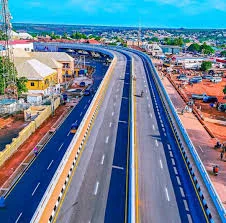Nigeria has attracted investment amounting to over $500 million from January 2024 after it launched a strategic energy transition initiative through the promotion of gas as key transition fuel.
This was disclosed by the Special Adviser to President Bola Tinubu on Energy, Mrs. Olu Verheijen, at the opening of the 2024 Oil and Trading Logistics Expo on Monday in Lagos.
Verheijen, represented by Mrs. Eriye Onagoruwa, said in recognition historical challenges in the petroleum sector, President Tinubu set out with a bold reform programme to address the critical issues and reposition Nigeria as a more desirable global investment destination for energy projects, and this efforts have culminated in some successes.
The government, she said, has established a more transparent regulatory environment, a stable regulatory environment, and clear delineation of Agency roles which was a vital first point of reform, making the Nigerian business environment more transparent, efficient and competitive.
The government, she said, also achieved this by clarifying the regulatory scope of the Nigeria Upstream Petroleum Regulatory Commission (NUPRC) and the Nigerian Midstream and Downstream Petroleum Regulatory Authority (NMDPRA) to ensure a stable and predictable regulatory environment for investors.
The presidential aide further stated that unprecedented incentive to attract new investment and promote diversification of Nigeria’s energy portfolio, have led to the introduction of fiscal incentives to deepen the penetration of Compressed Natural Gas (CNG) Liquified Petroleum Gas (LPG ) and Liquified Natural Gas (LNG).
This incentives include: waivers on import duties and Value Added Tax (VAT) on the sale and distribution of LNG, CNG and LPG, as well as associated equipment, which also cover electric vehicles, to encourage investment in this area as part of the commitment to sustainable energy transition in Nigeria.
She disclosed that the amount of investments from this initiative, from January till date, is over 500 million US dollars.
She further explained that, “We have launched the Presidential CNG initiative specifically to create a CNG ecosystem capable of achieving Nigeria’s objective of transiting to cleaner transportation fuels and easing the impact of the removal of fuel subsidies in Nigeria, the CNG initiative has so far attracted over $5 million in private investments in addition to government financing. And today, Nigeria has more than 125 vehicle conversion facilities, up from seven in 2023.”
Olu Verheijen spoke passionately about the use of dirty cooking fuel, as one, very important area that sometimes gets overlooked is clean cooking.
She said, several millions of Nigerians particularly women and children, live with a harmful health and environmental effects of cooking with firewood and charcoal.
“For them, the very act of cooking becomes a life threatening event. For these people, we are determined to provide affordable access to clean cooking options by way of gas and electric boat, and these fiscal incentives are designed to achieve this all important goal, which is in line with the United Nations SDG, seven on creating affordable and accessible energy.” she said.
Chairman of the Advisory Board, OTL Africa Downstream Energy Week, Mr. Adetunji Oyebanji, said, the 18th edition of the OTL Africa Downstream Energy Week brought together the leading minds across the energy value chain to exchange insights and ideas and to strengthen the connections that drive the industry forward.
Governor of Lagos State, Mr. Babajide Sanwo-Olu, represented by the Commissioner for Energy, Lagos State, Mr. Biodun Ogunleye said, energy transition isn’t simply replacing one energy source with another. He opined that, it is about developing an ecosystem that encompasses all elements including – exploration, production, storage and retailing.
The Minister of State for Petroleum(Oil) Heineken Lokpobiri, stated that the theme of this years’ event ‘Alliance for Growth;’ could not have been more apt at this pivotal time for the industry as the stakeholders navigate the complex dynamics in the industry and increase in the demand for technological advancement.
Chief Executive, National Petroleum Authority, Ghana, Dr. Mustapha Abdul-Hamid called for greater collaboration among stakeholders in the region and continent.
He said that Ghana uses $400m to import petroleum product monthly and therefore called for the adoption of common currency to address the exchange rate issues.
The Authority Chief Executive, the Nigerian Midstream and Downstream Petroleum Regulatory Authority (NMDPRA), Engr Farouk Ahmed said the Agency is fully committed to supporting all the reform initiatives of President Tinubu in the Midstream and Downstream sector through enhanced regulatory processes including efficient issuance of licenses, permits and authorizations.





